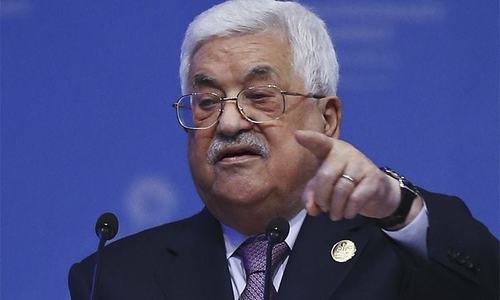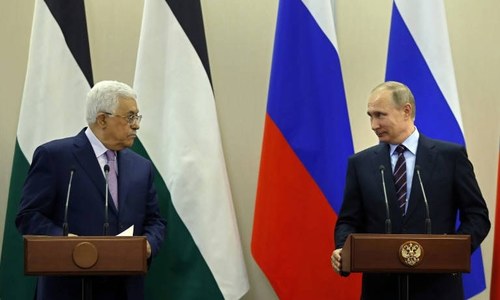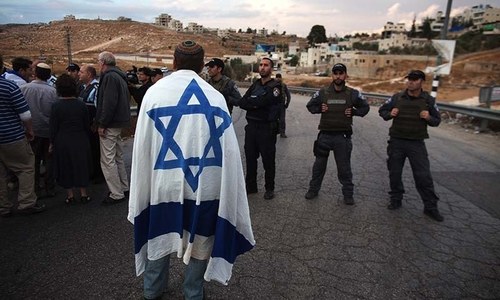Palestinian leader Mahmoud Abbas will urge world powers at the United Nations (UN) Security Council on Tuesday to stand up to the United States (US) decision to recognise Jerusalem as Israel's capital and establish a revamped peace process.
President Donald Trump's decision to move the US embassy to Jerusalem infuriated the Palestinians who declared that the US could no longer play a role as lead mediator in the Middle East peace process.
The stage will be set for a tense face-off with US Ambassador Nikki Haley, just weeks after she launched a scathing attack on Abbas and accused him of lacking the courage needed for peace.
Addressing the council for the first time since 2009, Abbas will call for a new collective approach in a bid to salvage the two-state solution to the Israeli-Palestinian conflict, said Palestinian ambassador Riyad Mansour.
Abbas “will say that after the 6th of December with regard to Jerusalem, that now is the time for a collective approach,” Mansour told AFP.
This could lead to a stepped up role for the other four permanent council members — Britain, France, China and Russia — or an expanded diplomatic quartet with Arab countries and others.
The Middle East quartet currently is made up of the US, the UN, the European Union (EU) and Russia.
Mansour said the Security Council, as the highest authority on matters of international peace and security, should come up with a new multilateral initiative and said the US would not be sidelined.
In this new approach, the US “will not have the only control. They will be part of the collective process for sure,” said Mansour.
“The bottom line is we want a new active process,” he said.
Israel, which often accuses the EU and the UN of bias against it, would be reluctant to accept any other mediator than the US.
Israeli Ambassador Danny Danon will also address the council.
New phase of struggle
Abbas's spokesman Nabil Abu Rudeina told state media that a “new phase of struggle has started” as the Palestinians seek to protect their claim to Jerusalem.
The Palestinians see East Jerusalem as the capital of their future state and UN resolutions call on countries to refrain from moving their embassies to the city until its status is resolved in an Israeli-Palestinian deal.
In December, the General Assembly voted 128-9, with 35 abstentions, to reject the US decision to recognise Jerusalem.
That vote in the 193-nation assembly came after 14 of the 15 council members voted in favour of a similar measure. The US vetoed that draft resolution.
Abbas' address to the council comes as the Trump administration is preparing a new peace plan even though chances for agreement appear dim.
Tensions have also flared over the US decision to cut funding to the UN agency for Palestinian refugees (UNRWA).
Trump has accused the Palestinians of “disrespecting” the US when Abbas refused to meet Vice President Mike Pence during his visit to the region last month.
“We give them hundreds of millions of dollars in aid and support,” Trump said, before warning “that money's not going to them unless they sit down and negotiate peace".
Abbas will also meet with UN Secretary-General Antonio Guterres but no separate meeting is planned with Haley, who has energetically defended the US decisions on Jerusalem and the funding cuts.
Haley told the council last month that peace will not be achieved “without leaders with courage” and warned the US “will not chase after a Palestinian leadership that lacks what is needed to achieve peace".
The UN granted Palestine the status of a non-member observer state in 1992, but an upgrade to full membership would require unanimous backing from the Security Council.
Diplomats said they were no plans for the time being to seek full UN membership, a move that would certainly face a US veto.














































